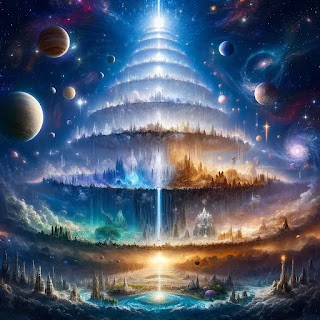The Daimon

The Romans believed that there was a spirit or even personal deity that followed a person from the moment of birth until the moment of death. The Romans called these beings "geniuses" which is where the modern engish term "genius" comes from, although with a different application. The Greeks called them "Daimons." They were protective spirits or divine beings. Every person supposedly had one from birth to death. They were in a sense the personication of the divine nature that dwells in every human being. In Christianity, the concept of "guardian angels" borrowed from the Romans, who often depicted their geniuses as having wings and protective tools, not so different from the depictions of angels. These beings were assigned to a person by the Creator, and dwelled with them for the entirety of their lives. Called "tutelary deities/spirits" which means protectors of a person, place, or thing, the jobs of geniuses, daimons, and guardian an...


.webp)



.webp)
